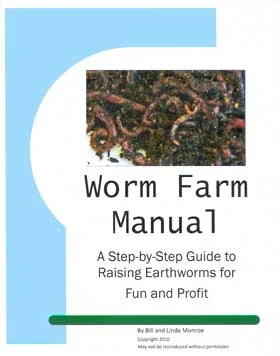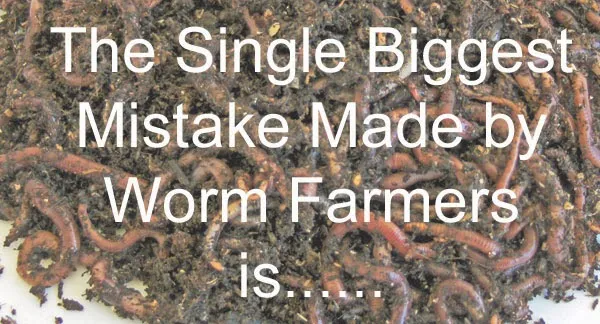Discover other worm farming tips and how-to's: Worm Farming Manual
Worm Farming Mistake No. 2
O.K. So now your worms have your undivided attention. You're lavishing constant care on your earthworms to the point your neighbors are talking and your wife and kids have left you. Well....hopefully you haven't gone that far.But, you've got them going and you're selling worms right and left. The phone is ringing off the hook and the orders of coming in. Your worms are flying off the shelves, so to speak. And you just got a huge wholesale order with the potential for repeat business.
Stop. Take a deep breath. Read the second point in the Common Worm Farming Mistakes bullet list below:
- Not paying attention to your worms
- Over selling your worms
- Under selling (not expanding your market)
- Expanding too fast
- Poor customer service
- Poor marketing
- Not delegating
Over Selling Your Worms
As you've learned here on the blog and in more depth in my Worm Farm Manual, worm reproduction takes a certain amount of time. And you need to keep a certain amount of worms on hand, in you worm beds, who are busy laying eggs for your future worm sales.
If you deplete your worm beds too much with overzealous selling, you'll find yourself with such a reduced worm population you want be able to replace the worms you're selling. Then, when your good customers need to reorder, you'll have to turn them down. And that could cost you a customer and affect your reputation.
Keep track of how many worms you have in your beds, how much you're selling and don't take on more customers than you can service. If you're getting more customers than you can handle, maybe it's time to think about expanding the number of worm beds and taking on extra help.
But don't forget to thank your lucky stars. Too many customers is a problem most businesses would die for. And, quite frankly, most worm farmers often find themselves in this enviable position.
More Worm Farming How-To's
There's a way to get around this worm inventory problem and fulfill all those orders detailed in my Worm Farm Manual: A Step-By-Step Guide to Raising Earthworms for Fun and Profit.
Digital Download or Hardcopy
Digital Download or Hardcopy





